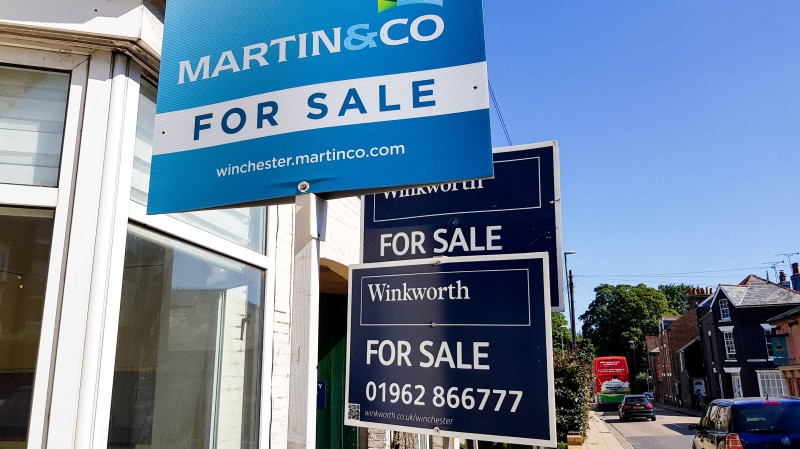You are here: What is a Canal and Rivers Trust search and why do I need it?
These searches provide information from the Canal and River Trust’s records and give information on nearby rivers, canals and streams and any rights or responsibilities you may have related to them. If your property is near to a waterway, or has one running through it, you will need one of these searches.
The Trust looks after 2,000 miles of canals and rivers across England and Wales. The canals can be well over 200 years old and although rivers may not be owned by the Trust, they are the navigation authority. They also manage operational boat yards, docks, historic warehouses, cottages, marinas, industrial estates and development land.
If you are unsure whether or not your property is adjacent to one of the Trust’s waterways, check the Trust’s website (canalrivertrust.org.uk) which has plans of the waterways the Trust manages.
Any breach of a waterway or structural damage could result in extensive flooding causing either damage to buildings, property, services and possible loss of life. Embankments and other waterway structures are particularly vulnerable and the Trust has to be consulted about any excavation, landscaping or any other work or proposed activity, even if the work is not taking place on their property. So, it’s vital to conduct one of these searches.

Are they mandatory?
No, but if you have a waterway running along the boundary of your property or through it, your conveyancing professional will recommend it. You need to know your rights regarding any part of the property you are buying and a waterway is no exception.
When you are buying with a mortgage, the conveyancing solicitor has to follow a set of standard instructions defined in The UK Finance Mortgage Lender’s Handbook.
The handbook comes in two parts, the first part applies to all UK Finance members –members of the organisation represent 97% of lending in the UK.
Part 2 contains a section for each member, detailing their requirements. This is where your conveyancer will find the list of which searches are required by your lender. In most cases the minimum required will be:
- Land registry searches (both Register and Title Plan)
- Local search - either Regulated or Council (both LLC1 and CON29)
- Water and Drainage - Regulated or CON29DW
- Environmental (likely to contain an element of ground stability assessment)
Further reports required include (but aren’t limited to):
- Flood
- Coal
- Cheshire Brine
- Limestone
- China and ball clay
- Tin
- Bath stone
- Radon gas
- Chancel repair liability reports (if the last purchase was before 12/10/13)
- Planning reports
See other articles for more information.
When are they ordered?
Most searches should be ordered as soon as you appoint your conveyancing solicitor. One of the first things they will do is ask you for some money on account in order to pay for a number of searches.
As a minimum they will order Land Registry and Local Searches, Water and Drainage Searches, an Environmental Search, a Flood Risk Report and any specifically required searches based on geography, such as Radon Gas, Mining or China Clay searches.
Your solicitor is the professional so trust their recommendations, even if you think it’s crazy to do a flood search when you’re on the top of a hill, for example. For more information on any other searches, have a look at our other articles.
What do they tell you?
The report includes information on:
- Any works owned by the Trust in, on or over the property
- Whether (apart from statutory rights), The Trust have any other rights that may affect the property; or has any proposals to acquire or create new rights or to carry out any future works that may affect the property
- Whether according to the Trust’s records the boundaries of the property adjacent to Trust’s land are correctly shown on the attached plan
- Whether any liability falls on the owner of the property or any part of it in respect of the maintenance or repair or rebuilding of the waterway or its banks or towing paths
- Any notices, licenses or consents that have been served (like fishing or mooring rights)
Are there different types?
Only in so much as the same search can be completed within different timescales: 14 or 5 working days (see associated costs below).
What do they cost?
A search for an individual residential property costs £200 plus VAT. A commercial property (including a site of multiple residential properties) costs £500 plus VAT.
Responses are usually given after 14 working days, if information is needed quicker than that, the search can be expedited for £150 plus VAT and returned withing 5 working days.
How long do they last?
When acting on a conveyance, your solicitor must follow The UK Finance Mortgage Lender’s Handbook, it says that searches must be no more than 6 months old on completion.
A lot can change in a short space of time with property so even if this wasn't the case, it’s important that the information you have about your new property is as up to date as possible. Your conveyancer will let you know if the search is coming close to expiry.
If you are thinking of buying or selling your home, you may find some of these services useful:
Conveyancing
Get instant estimates from Conveyancers and Solicitors in your local area
Mortgage Brokers
I need help getting a mortgage
Estate Agent
Find a local Estate Agent
Valuation Surveys
If you need a Valuation Survey
Building Surveys
I want a local surveyor to do a Building Survey for me
Removals
I want to find a removal company
Energy Performance Certificate
Energy Performance Certificates